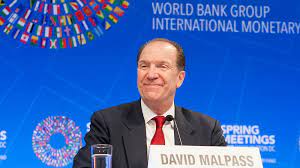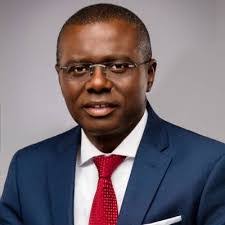The World Bank Group has rated Nigeria’s fiscal system, in terms of revenue generation and inefficient use of resources, among the lowest globally and canvassed the need for the Nigerian governments to embark on macroeconomic and fiscal reforms to lift Nigeria’s development outcomes.
The Washington D. C-based development finance institution’s latest position on the nation’s public finance system was made public on Tuesday in Abuja with the unveiling of its ‘Nigeria Public Finance Review: Fiscal Adjustment for Better and Sustainable Results’ Report.
The bank noted that for years, a large share of Nigeria’s resources had financed inefficient and regressive subsidies for petrol, electricity, and foreign exchange, adding that not all these subsidies are accounted for in the budget, which makes them difficult to track and scrutinize.
The report’s findings, however, suggest that these subsidies, which accounted for more than the amount spent on education, health, and social protection in 2021, benefit primarily wealthy households. They also distort incentives, discourage investment, and crowd-out spending on pro-poor programs, thereby hindering progress in Nigeria’s social development.
Similarly, the report’s findings also showed that Nigeria had one of the lowest public expenditure and revenue levels in the world, undermining the Government’s ability to improve service delivery.
For instance, one of the key findings in the report is that between 2015 and 2021, total public spending in Nigeria averaged 12 percent of gross domestic product (GDP), less than half the world average of 30 percent. Improving service delivery requires more resources.
Given the country’s low ratio of the public spending to GDP, the bank pointed out that one of the most critical aspect of meeting Nigeria’s vast development needs remained in raising more revenues, as the country ranks consistently among the world’s poorest-performing countries in terms of public revenue mobilization, with total revenues averaging just 7 percent of GDP in 2015-2021 — far below the global average of 24 percent.
It further noted that low tax rates and poor utilization of tax bases, weaknesses in tax administration, and large deductions from oil revenues were constraining Nigeria’s inability to generate enough revenues.
Commenting on the report, World Bank Group President, David Malpass, said: “Nigeria’s government urgently needs to strengthen fiscal management, create a unified, stable market-based exchange rate, phase out its costly, regressive fuel subsidy and rationalize preferential trade restrictions and tax exemptions. These would lay the groundwork for the increases in public revenues and spending needed to improve development outcomes.
“Decisive moves would significantly improve the business enabling environment in Nigeria, attract foreign direct investment, and reduce inflation. The World Bank is ready to increase support to Nigeria as it designs and implements these critical reforms”, he stressed.
The World Bank Group Nigeria Country Director, Shubham Chaudhuri, said: “Nigeria is at a critical historical juncture and has a choice to make. A child born in Nigeria today will be only 36 percent as productive when she grows up as she could be if she had access to effective public education and health services, and has a life expectancy of only 55 years.
“These stark indicators illustrate the urgency for action by Nigeria’s policymakers to improve the macroeconomic and fiscal framework, so as to sustainably enhance the quality of spending and public services at Federal and State levels”, Chaudhuri added
The Nigeria Public Finance Review was conducted at the request of the Federal Ministry of Finance, Budget, and National Planning, and prepared in close collaboration with the Budget Office of the Federation, the National Bureau of Statistics, the Office of the Accountant General of the Federation, and the Debt Management Office.
It aims to inform the public debate on Nigeria’s future by providing a thorough analysis of the fiscal performance and necessary reforms needed to establish a robust and sustainable development model that provides broad-based economic opportunities for all Nigerians.



